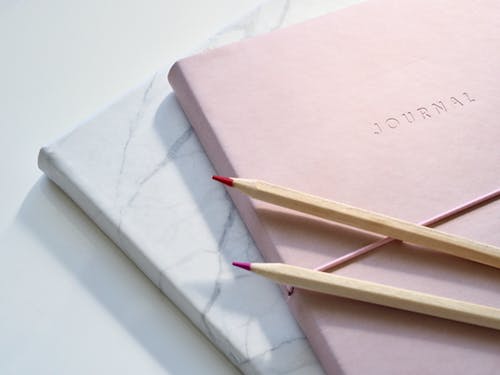Journaling is an activity that’s both enjoyable and beneficial. The latter is especially true if you’re trying to learn something or work through a difficult phase in your life.
Those who travel might find it easier to go for photo journaling and keep track of their trips that way. Others might find it useful to keep a journal as a therapy of sorts.
However, people can find it especially useful to keep a dream journal. This isn’t surprising, as humans have always been curious about their dreams and the meaning behind them. Dreams have fascinated scientists, artists, psychologists and even mathematicians over the centuries, so it’s only logical that some individuals would like to figure out their dreams as well.
For this purpose, a dream journal is assuredly among the best options out there. Below are just a few points about dream journals that might help us in better understanding this concept:
Just What is a Dream Journal?
A dream journal, also called a dream diary, is basically any kind of notebook, document, or other platforms where one records their dreams. You might have noticed that your dreams are quite interesting, but the details seem to slip through your fingers the minute you wake up. A dream journal can help you solidify your dream memories, especially if you keep it by your bedside with a pen or pencil handy. This Classic Dream Journal can help you get in the mood, as it contains sayings about dreams and gives enough space for your own musings. For a more sober option, you might want to consider the Bedside Dream Journal.
Dream journals could also include some personal reflections as well as records of your dreams. You may also jot down your waking experiences, such as a time when you woke with a jerk or fell out of bed while dreaming vividly.
If you don’t feel like writing or typing is the best way to preserve your memories of a dream, you may want to try recording your experiences upon waking up. An audio recording device or a recording app on your smartphone will be good enough for this purpose. There are even some websites that we can use to make our own digital dream dairy. In addition to using smart products to help you sleep faster, using technology to remember dreams is also a logical idea.
Uses of Dream Journals
Psychological studies about dreams usually involve dream journals in order to get the details down as accurately and quickly as possible. Some people may also use such journals to help in inducing lucid dreaming, which is a state where one can actually control their own dreams. If nothing else, some might choose to keep a dream journal simply as a way to remember their dreams before they forget them. They might want to figure out some sort of message or solution to a problem that they think their dreams are trying to tell them.
Ann Faraday, a psychologist who authored the book ‘The Dream Game’ was one of the first to recommend keeping a dream diary. With this activity, it was hoped that one could preserve details of memorable, interesting, or even disturbing dreams.
What’s more, it’s now also apparent that keeping a dream journal could actually help a person to remember their dreams more accurately. The writing activity conditions one to think of remembering their dreams as an important concept. This particular dream journal designed by Meagan Watkins can help to further shape your dreams before they slip away.
Understanding Emotions and Thoughts
Keeping a dream journal can also help us in sorting out our emotions, thoughts, and feelings about events in our lives. Since dreams are based on our own psychology, they do have some influence on how we might feel or think. For instance, a happy and colorful dream might result in our waking up with high spirits. This will then lead to a happy and optimistic feeling throughout the following day. On the other hand, having a nightmare might result in a sad or worried feeling even after you wake up and go about your routine.
When you keep a dream journal, you might be able to pinpoint some triggers in your daily life that lead to a positive or negative dream. This could help you control the kinds of dreams you have and hopefully influence your own thoughts in a positive way.
Lucid Dreaming
As mentioned above, some might want to keep a dream journal solely for the purpose of achieving a state of lucid dreaming. Lucid dreaming occurs when one is aware that they are dreaming and can hence control what they do and what happens in their dream from then on. There might be limitations to what you can do in that state, but it’s generally a fulfilling and exciting experience.
If you do manage to learn the art of lucid dreaming, you might be able to turn a bad dream into a good one. If someone routinely suffers from nightmares, they might be able to overcome this issue altogether.
Solving Problems
Anything can happen in dreams; some have even found a solution to the issues they’ve been facing in their actual lives. Just one example is that of Elias Howe, who is credited with inventing the modern lockstitch sewing machine. He struggles with the design of the sewing needle in his invention and couldn’t get it to stitch without tangling the thread. Eventually, he had a dream where some cannibals pointed their spears at him—the spears had holes in their tips. Upon waking, Howe has the idea of putting the hole on the tip of the sewing machine needle instead of the end.
While Howe might not have kept a dream journal, it’s possible that we might be able to use this concept to solve our own issues. Our problems might be manifested in some way within our dreams, so journaling about them might just help us work out what needs to be done. Several writers have taken inspiration from their dream to propel their stories forward, or even to come up with a new story idea in the first place.
How to Start Writing a Dream Journal
If you’re interested in starting a dream journal, there are certain ways to go about it. The following tips should help you get on the right path and start benefiting from your journaling as soon as possible.
First off, start writing as soon as possible; don’t wait for a certain time or phase. There’s no need to order a special notebook or even to get done with your current project. Recording your dreams with any medium is always possible. If you go for recording or even typing, the whole exercise can take just a few minutes each day. In fact, it might even help you wake up more thoroughly in the morning.
It’s also important to start journaling right when you wake up. Even a few seconds can start to erase the memories of your dreams. Keep your journal, phone, laptop, or recording device by your side so that you can easily access it when you wake up from a dream at any point.
Next, it’s also important to record as many details as possible. Jot down the objects you could see in the dream, what colors there were, and what you could hear. Nothing is too small or insignificant to record; anything could be of importance later on. Details will also help in interpreting your dreams if that’s your goal.
Writing might not always be the most effective way or chronicling your dreams. Some might prefer to draw what they saw; go for that method if it makes more sense.
Once you’ve written your dreams down, take out some time each week or month to compare your records to your waking life. See how your dreams might be affecting how you feel each day. You can also look back to the previous day and see which elements showed up in your dreams. Certain patterns might also come up to help you make sense or confusing or worrisome situations.
Conclusion
There are several different types of dreams and dream states, but we can gain some control and benefit by journaling about all that we experience in that state. There might be a few problems along the way, such as false awakening, where we dream about journaling and assume we’ve done in reality.
After surviving a few false alarms, however, many folks have found that journaling about their dreams has helped them out in many ways. It might be worth trying out this activity at least once and see how it goes.







